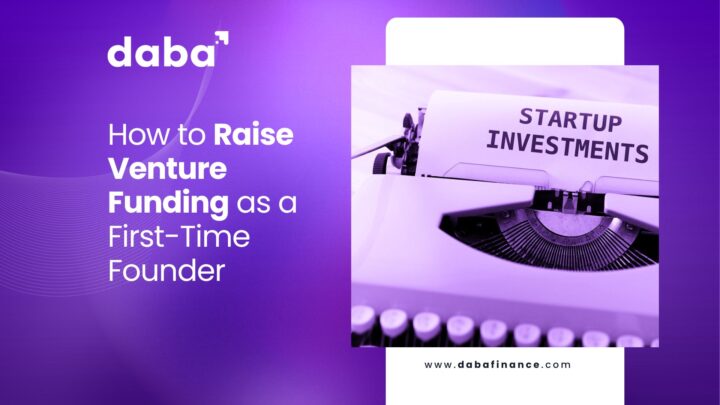So you have a fantastic idea for a business – a revolutionary product or a service that will disrupt the market. Now comes the crucial question: how do you take that idea and turn it into a reality? This is where pre-seed funding comes in.
This guide will equip you, the new founder, with a comprehensive understanding of pre-seed funding. We delve into its purpose, explore its uses, and equip you with the knowledge to navigate this exciting yet critical stage.
What is Pre-Seed Funding?
Pre-seed funding is the earliest form of external capital a startup acquires. It typically precedes seed funding, the more formal first round of investment, and helps you validate your concept and take your business from the ideation stage to a more tangible form.
Unlike seed funding, which often involves a more formal investment structure, pre-seed funding is about securing the resources needed to develop a Minimum Viable Product (MVP), conduct market research, and build a strong foundation for your startup.
Why is Pre-Seed Funding Important?
Imagine this: you have a revolutionary idea that could disrupt an entire industry. However, your brilliant idea remains just that – an idea – without the resources to bring it to life. Pre-seed funding bridges this gap. Here’s how:
- Validates your concept: Pre-seed funding allows you to conduct market research, gather valuable user feedback, and build a basic prototype. This initial validation process helps you understand if your idea resonates with your target audience and has the potential to be successful.
- Attracts top talent: Often, passionate founders alone can’t build a company from scratch. Pre-seed funding empowers you to bring talented individuals on board, like developers or marketing specialists, who can help solidify your vision.
- Increases your chances of securing seed funding: With a validated concept and a functional prototype, you become a much more attractive proposition for seed investors. Pre-seed funding essentially acts as a stepping stone to securing larger investments down the line.
Daba offers a comprehensive suite of investment solutions, including access to capital and investment guidance – whether you’re seeking pre-seed funding or exploring future funding rounds. Get in touch to learn more.
What are the Common Uses of Pre-Seed Funding?
Pre-seed funding should be strategically allocated to activities that lay a strong foundation for your startup. Some of the most common uses include:
- Market research: Understanding your target market and its needs is paramount. Pre-seed funding can be used to conduct surveys, focus groups, and other market research activities to refine your product or service offering.
- Prototype development: A Minimum Viable Product (MVP) is a basic, functional version of your product that allows you to gather user feedback and iterate on your design. Pre-seed funding can finance the development of this crucial MVP.
- Building your team: The right team can make or break your startup. Pre-seed funding can help you hire talented individuals with the skills and experience required to bring your vision to life.
Also Read: How to Raise Venture Funding as a First-Time Founder
Who Provides Pre-Seed Funding?
Pre-seed funding often comes from various sources, including:
- Angel Investors: These are affluent individuals who invest their own money in early-stage startups with high growth potential. They often provide not only financial backing but also valuable mentorship.
- Incubators and Accelerators: These programs offer startups office space, mentorship, networking opportunities, and sometimes even pre-seed funding in exchange for equity.
- Friends and Family: Bootstrapping, using your savings or contributions from friends and family, can be a viable option for pre-seed funding, especially for initial concept validation.
How Much Pre-Seed Funding Do You Need?
The amount of pre-seed funding you require will depend on your specific needs. However, it typically falls within the range of $50,000 to $250,000. Here are some factors to consider when determining your funding needs:
- Complexity of your Product or Service: Developing a complex app will require more resources than launching a simple online service.
- Team Size: The number of people you need to hire will significantly impact the funding needed to cover salaries and benefits.
- Market Research Scope: Extensive market research involving surveys, focus groups, and user testing will cost more than a basic online survey.
Remember, it’s crucial to be realistic about your funding needs and create a detailed budget that outlines your expenses.
Also Read: How to Raise Venture Funding in a Downturn
Positioning Yourself for Pre-Seed Success
Securing pre-seed funding requires a well-defined plan and a compelling pitch. Here are some key steps:
- Develop a solid business plan: A well-crafted business plan outlines your company’s vision, mission, target market, competitive landscape, financial projections, and funding needs. This document serves as a roadmap for your startup and is essential for convincing potential investors.
- Network with potential investors: Connect with angel investors, venture capitalists, and incubators that specialize in your industry. Networking events, online platforms, and industry conferences can be excellent avenues for building relationships with potential funders.
- Build a strong founding team: Investors back not just ideas, but also the people behind them. Surround yourself with talented and passionate individuals who complement your skillset.
- Craft and refine your pitch: Be prepared to deliver a concise and persuasive pitch that highlights your innovative idea, the market opportunity, your team’s qualifications, and how you plan to utilize the pre-seed funding. Investors need to be convinced of your passion, the viability of your idea, and your ability to execute. Develop a compelling pitch that clearly articulates your vision, the problem you solve, your target market, and your competitive advantage.
- Focus on traction: While pre-seed funding is about potential, showcasing early traction can significantly increase your chances of success. This could involve initial customer interest, a strong pre-order list, or positive feedback from early testers.
- Highlight your exit strategy: Investors want to know how they will eventually see a return on their investment. Explain how you plan to achieve an exit, such as an acquisition by a larger company or an initial public offering (IPO).
At Daba, we understand the challenges and triumphs that come with launching a startup in Africa and emerging markets. We offer a comprehensive suite of investment solutions that can empower your entrepreneurial journey. Get in touch to learn more.

